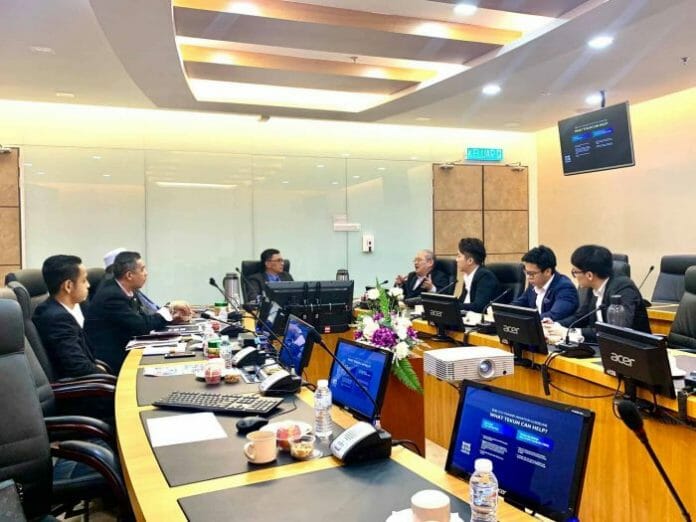A new research by Microsoft has indicated that business leaders in Malaysia should resist the urge to see hybrid work as business as usual, and rethink long-held assumptions for future work arrangements. For instance, most workers in Malaysia want flexible working to continue, yet they crave for more in-person time with their teams. Additionally, more than half of the local workforce feel overworked and exhausted, increasing risks of burnout among employees as boundaries blur between work and relaxation.
These are some of the local findings announced by Microsoft from its first annual Work Trend Index titled “The Next Great Disruption is Hybrid Work – Are We Ready?” The report surveyed more than 30,000 people in 31 countries including 1,000 people in Malaysia, and analysed trillions of aggregate productivity and labor signals across Microsoft 365 and LinkedIn. It also included perspectives from experts who have studied collaboration, social capital, and space design at work for decades.
As local businesses continue to adapt to new ways of working, the Work Trend Index identified 7 emerging trends in Malaysia that will shape the future of a hybrid work world.
- Flexible work is here to stay: Employees want the best of both worlds. 77 percent of workers in Malaysia surveyed want flexible remote work options to continue, and 75 percent are craving more in-person time with their teams. To prepare, business leaders (62 percent) in Malaysia are considering redesigning office space for hybrid work.
- Leaders need to stay in touch with employees: Half of the business leaders surveyed are faring better than their employees. Research shows that 46 percent of leaders in Malaysia say they are “thriving” right now – 16 percentage points higher than those without decision making power.
- High productivity is masking an exhausted workforce: Self-assessed productivity has remained the same or higher for many employees over the past year. However, this comes at a human cost. 58 percent of workers in Malaysia feel overworked and exhausted, with what is expected of employees increasing significantly during this time.

- Gen Z is at risk and will need to be re-energized: 69 percent of this generation in Malaysia — those between the ages of 18 and 25 — say they are merely “surviving” or “flat-out struggling”. This generation is more likely to be single and early in their careers, making them more likely to feel the impacts of isolation, struggle with motivation at work, or lack the financial means to create proper workplaces at home.
- Shrinking networks are endangering innovation: Teams are more siloed in a digital work world. Aggregate trends across billions of Microsoft Teams meetings and Outlook emails showed that interactions with immediate team or close network strengthened with the move to remote work. However, interactions outside of that team, or distant networks, have diminished. 38 percent of workers in Malaysia experienced decreased interactions with coworkers with the move to remote work.
- Authenticity will spur productivity and well-being: Coworkers leaned on each other in new ways to get through the last year. Some workers in Malaysia have cried with a colleague (22 percent), and others have met their colleagues’ pets (14 percent) or families virtually (26 percent). These increased interactions have led to 44 percent of workers in Malaysia feeling like they can be their full authentic selves at work this year.
- Talent is everywhere in a hybrid work world: 47 percent of those surveyed in Malaysia are planning to move to a new location this year. This indicates that people no longer have to leave their desk, house or community to expand their career opportunities. This has also led to 45 percent of workers and 57 percent of Gen Zs in Malaysia likely to consider leaving their employers this year.
“The pandemic has proven that organisations can and must trust their people to be productive from anywhere, and anytime. Leaders now have the opportunity to define a hybrid workplace strategy that combines the best of the digital workplace and the physical workplace. This includes empowering people with the flexibility and autonomy of remote work and enabling the crucial human connection with colleagues and customers in person,” said Michal Golebiewski, Chief Marketing & Operations Officer, Microsoft Malaysia.
“The implementation of a successful hybrid work culture will require organisations to experiment and refine over a long-term period. Employee wellbeing should be at the forefront of this strategy and it will require a rethinking of long-held assumptions by organizations, bearing in mind the impact it will have on the growth, as well as its ability to foster collaboration and innovation.”
In addition to uncovering what is at stake with the future of work, the Work Trend Index identifies five strategies for business leaders as they begin to make the necessary shift:
- 1. Create a plan to empower people for extreme flexibility
- 2. Invest in space and technology to bridge the physical and digital worlds
- 3. Combat digital exhaustion from the top
- 4. Prioritize rebuilding social capital and culture
- 5. Rethink employee experience to compete for the best and most diverse talent
- -Microsoft









